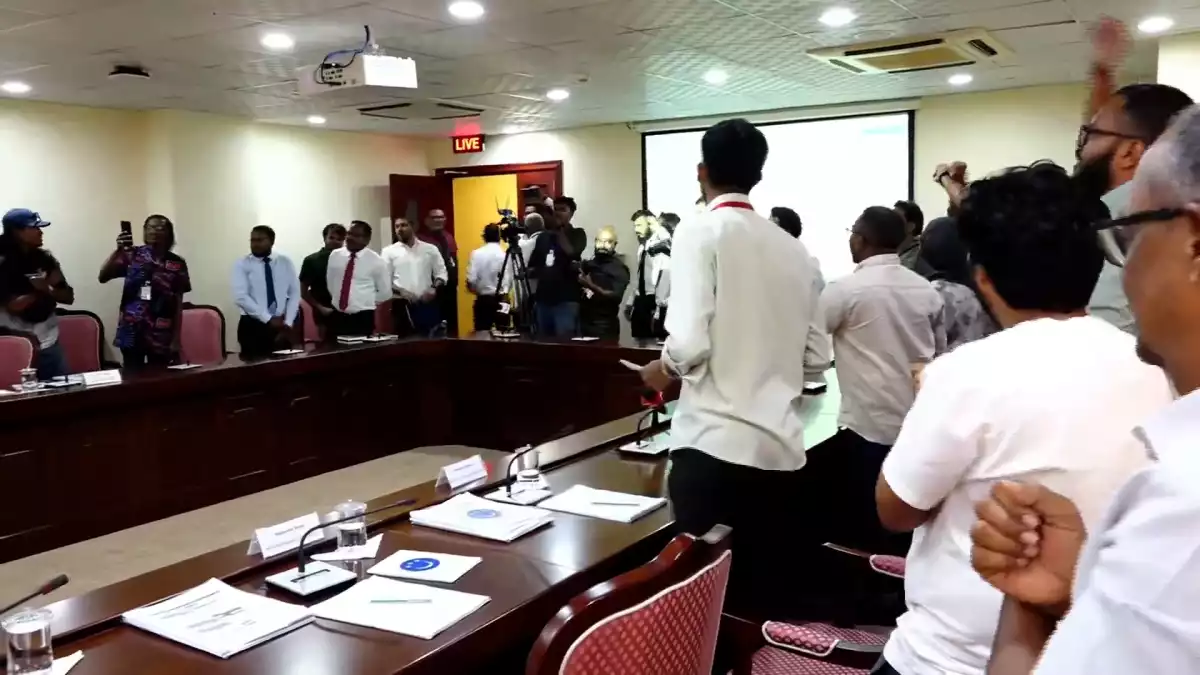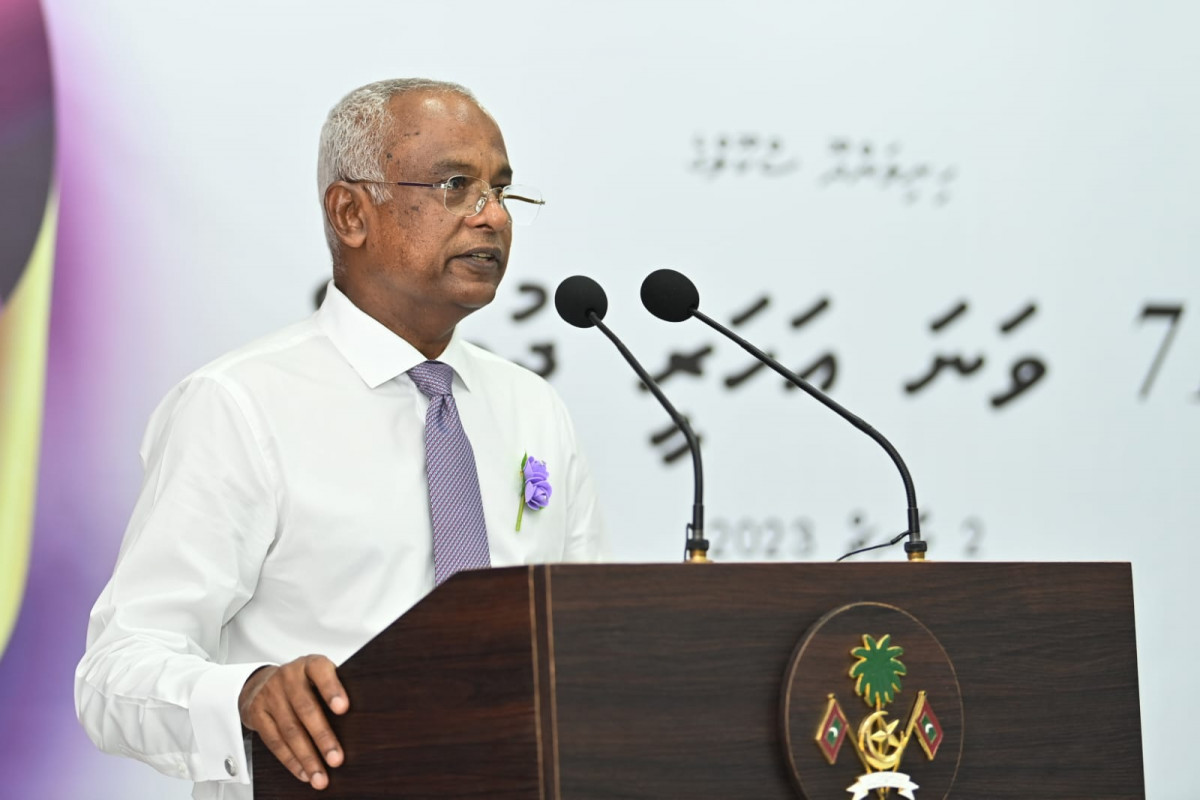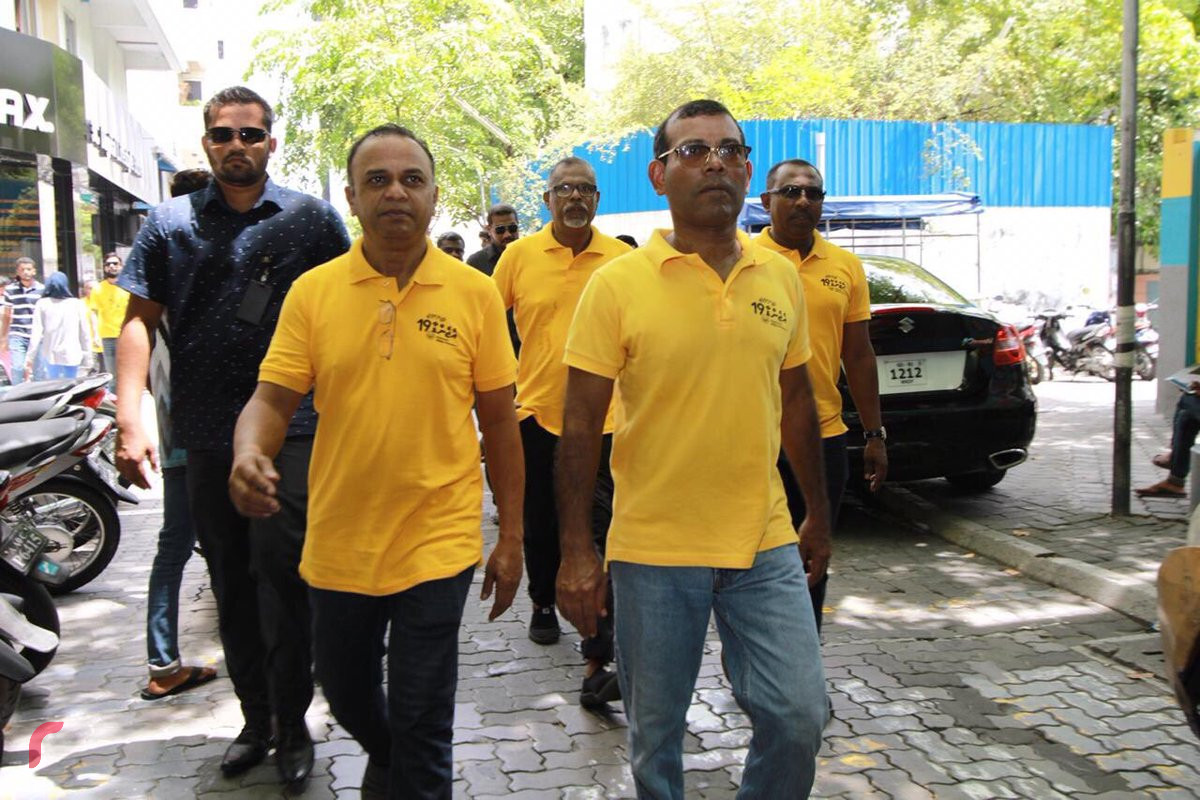Amended media bill introduces stricter measures to control social media: journalists
The committee passed the bill with stricter provisions aimed at controlling social media despite public opposition


Some journalists and the public protest at the Independent Institutions Committee of the Parliament.
Journalists have raised serious concerns after the Independent Institutions Committee of the People’s Majlis passed the controversial media control bill on Monday, warning that the amended version introduces even stricter provisions, including cunning clauses aimed at controlling social media.
The bill was passed during a committee session attended by journalists and members of the public, some of whom were protesting against the legislation. Despite the visible opposition, the committee, chaired by a government-aligned majority, approved the bill with a series of amendments. However, journalists argue that the revised version is even more dangerous than the original.
At a press conference held shortly after the session, journalists criticized the committee for retaining key articles that undermine media independence and expand the government’s reach into digital and social media regulation.
They pointed out that the bill still allows President Dr. Mohamed Muizzu to appoint three out of seven members to the powerful commission that will oversee media regulation under the new law, a move widely seen as a blow to regulatory independence.
Journalists also revealed that while the article allowing individual journalists to be fined was removed, other punitive provisions remain untouched. These include the power to impose fines on media outlets, and the authority to revoke a media outlet’s registration without clear or objective criteria.
According to the journalists, what was more troubling was the retention of vague but far-reaching clauses that give the commission oversight over social media, raising fears of online censorship and suppression of digital expression.
Journalists stressed that the bill is not just about regulating traditional media anymore, and that it is about expanding government control over the entire information space, including social media and the internet.
They warned that the core spirit of the bill remains authoritarian, designed not to uphold media standards but to eliminate independent journalism and silence dissent.
Despite widespread opposition from local journalists, civil society groups, and international press freedom organizations, the government has shown no signs of withdrawing the bill. Back in August, Attorney General Ahmed Usham publicly defended the legislation, claiming there is “no reason” to reject it.
Protests led by journalists continue, as calls intensify for the government to respect constitutional freedoms and abandon its efforts to tighten control over the media landscape.






